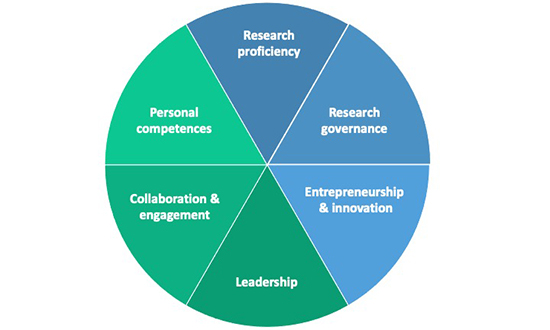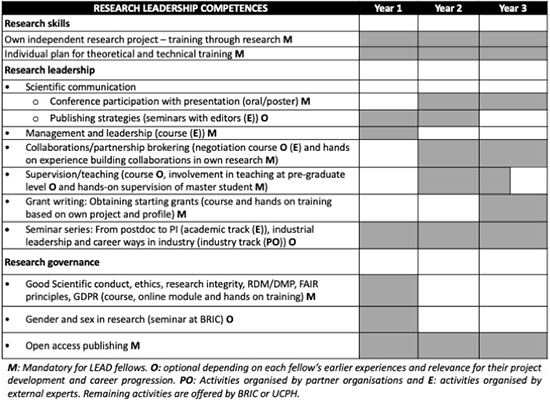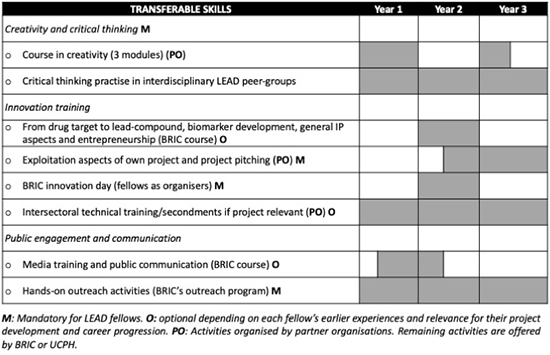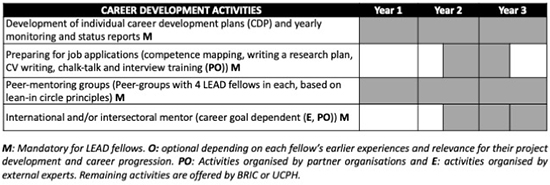Programme Content
The training is developed with academic and industrial partners, to ensure that it is relevant for positions in both academia and industry, thereby widening the career prospects of the fellows.
Specifically, the training will lead to competence-building in six main areas as outlined in the figure, which together with the expected scientific publications and the fellows’ expanded network, will be a door-opener for their first research leader position.
Some of the competence-building activities are directly enabling the fellows’ transition from postdoc to research leader, but several focus on transferable skills highly asked for across a variety of positions, including project management skills, communication skills, engagement and collaborative skills.

Research proficiency
Scientific knowledge and methodologies. Advanced techniques. Creativity and critical thinking. Scientific dissemination.
Research governance
Research conduct, ethics and integrity. RDM/DMP. GDPR. FAIR principles. Gender and sex in research. Organizational skills.
Innovation and entrepreneurship
Identifying and protecting inventions, commercial project pitching, IPR in collaborations.
Leadership
People and project management, supervision, mentoring, communication, negotiation. leading creative processes, strategic thinking, equity and diversity in research.
Collaboration and engagement
Team-work, peer-mentoring, partnership brokering, trust-building, cultural understanding (across borders & sectors), public responsibility and engagement.
Personal competences
Prioritization, self-management and reflection, career strategies, responsibility, life balance.
Courses and Activities



